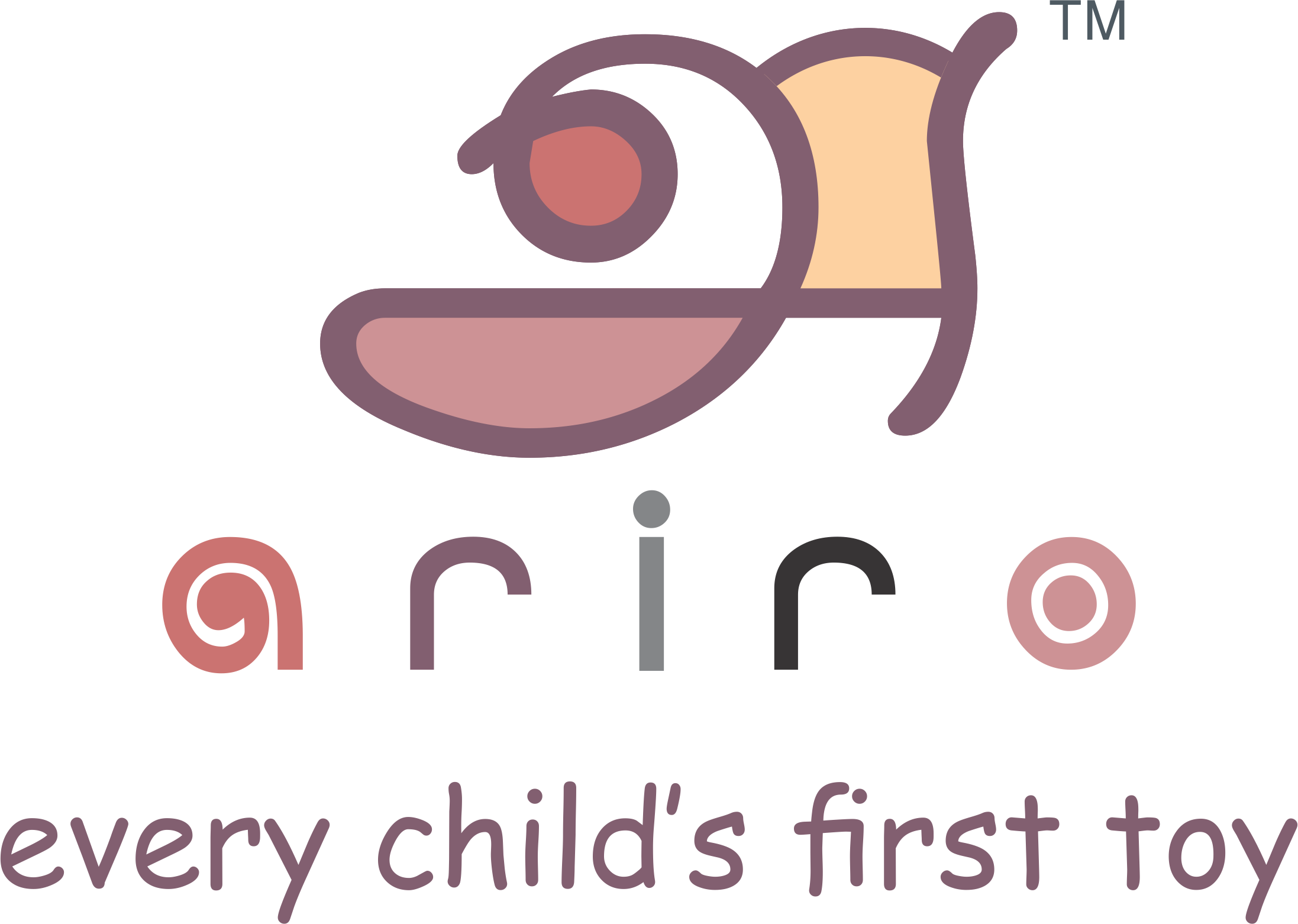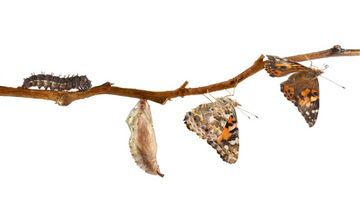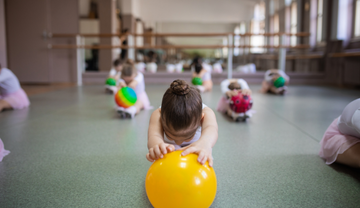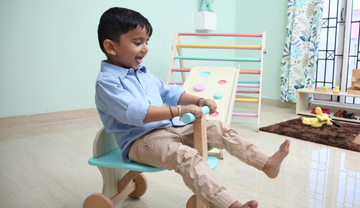We live in bizarre times that no one was prepared for and everyone is clueless about how to live through this. There is no manual on how to get through the pandemic and everybody is just doing the best of the situation.
While offices and schools for older children have transitioned quickly from real-time to the online mode, this simply doesn't work for the youngest members of our families. Toddlers learn from real-life experiences and through their relationships with people. No matter how hard we try, we simply can’t transfer these experiences on to the screen. But with parents trying to juggle work from home, household chores and taking care of children at home, this task for caring for toddlers can seem daunting, and rightly so.
Here are some pointers on how to navigate through these uncertain times and balance work and home.

Set up a routine

Although it may be tempting to let them stay in bed a bit longer or change meal times according to your convenience, the truth is that toddlers thrive on routine and order. Simple things like waking up at the same time every day, performing tasks needed for everyday life and going to bed at the same time, helps toddlers predict how their day is going to be and reduces meltdowns and tantrums. When they know what is coming, toddlers feel a sense of calm and security and confidently explore their surroundings.
Sit down with your family and decide a routine that works for everyone and write it down. Also, decide the chores and duties of each family member to avoid conflict later. Here is an example of things to schedule into your toddler's day.
- Routine for starting the day
- Getting dressed and ready for the day
- Breakfast
- Toileting breaks
- Independent playtime
- Lunch
- Time with family (reading/conversations/walks)
- Snacks
- Routine for ending the day
It is essential to find a rhythm that works for your family and therefore leave this routine flexible and subject to changes based on observation. Don't be too rigid about the times but try to stick to the same order of things as much as possible.
Here is a link to download the toddler routine cards from Simone Davies who also wrote the book The Montessori Toddler (which is a highly recommended resource for this age group)
https://www.themontessorinotebook.com/montessori-routine-cards/
Preparing the environment

As toddlers are still building their sense of internal order, it really helps them if there is a sense of external order and calmness in the environment. Our homes are often designed for adult convenience and are lands of giants for toddlers. Make your home accessible by either bringing things down to your toddler's level or giving them a learning tower or step stool to reach higher surfaces.

Set up spaces for your toddler to work and play, a little reading nook, an area from where they can access some snacks independently, clothes for the day at their level and a floor bed where they can go nap if they feel tired. Strike a balance between your child's needs and the rules of the family when setting up the environment. Although toddlers need the freedom to move, you can also set limits into spaces where they aren’t free to move around. You can tell your child, “This is my workspace and it is not safe for you, so I cannot let you in here, you can work in your workspace”.
Practical Life
You must have noticed that your child loves to do what you do and be involved in ‘adult’ activities of cleaning and other household chores. In Montessori, we call these activities as practical life activities. These are nothing but activities that involve taking care of ourselves, taking care of others and taking care of our environment.
When children are given opportunities to contribute to the household, they feel like valued members of the family. This increases their self-worth and builds self-confidence. It also helps them to become independent. We can provide these activities by providing the child with small tools that their hands can handle (cut down the size of your mop and broom and let them have a go), by showing your child how to do these activities by using slow and deliberate movements and making sure that the things are always kept at a place from which the child can use them and put them back. Some examples of practical life activities include:
- setting the table
- putting groceries into shelves
- dusting
- sweeping
- cleaning windows
- watering plants
- folding laundry
- feeding a pet
- washing dishes
- making their bed

Here’s a list of age-appropriate chores for children
https://www.themontessorinotebook.com/age-appropriate-chores-for-children/
Language Development

Sensitive periods are special and specific times in the child’s life when they are especially able to learn certain skills. Toddlers are going through a sensitive period for language. Toddlers love to listen to languages and learn from their environment. We can create a language-rich environment in the home by narrating the happenings of the day, reading aloud together, providing rich sensorial language experiences (cooking, baking), describing things to them using rich and precise words and singing songs together.. It is also useful to remember that toddlers are taking in a lot more language (receptive) than they can speak right now (expressive).
This means that your child knows a lot more words than they are currently speaking. We can encourage language development by listening to children when they speak with us (give them our full attention) and also having meaningful conversations with them by pausing after every sentence to give them the time to process and respond.
Adult self-care
We must remember that we can’t pour from an empty cup. As adults, our children need us to take care of ourselves so we can take care of them. It is important to acknowledge that this is a difficult period for everyone and be kind to ourselves. Taking out some time for ourselves is essential to our well-being and mental health. Take some time out of every day to do something that is exclusively for yourself – whether that be a hot bath or an episode from your favourite show. Doing some physical activity and meditation are also great tools to help us take care of ourselves through these stressful times.

Parents may worry that children may miss out on academic learning due to missed school time this year, but this does not apply in the case of toddlers. Toddlers thrive at home when they are respected, cared for and involved in everyday happenings. With a little planning and some faith in the abilities of your child, you can make these times memorable and peaceful for your entire family.








